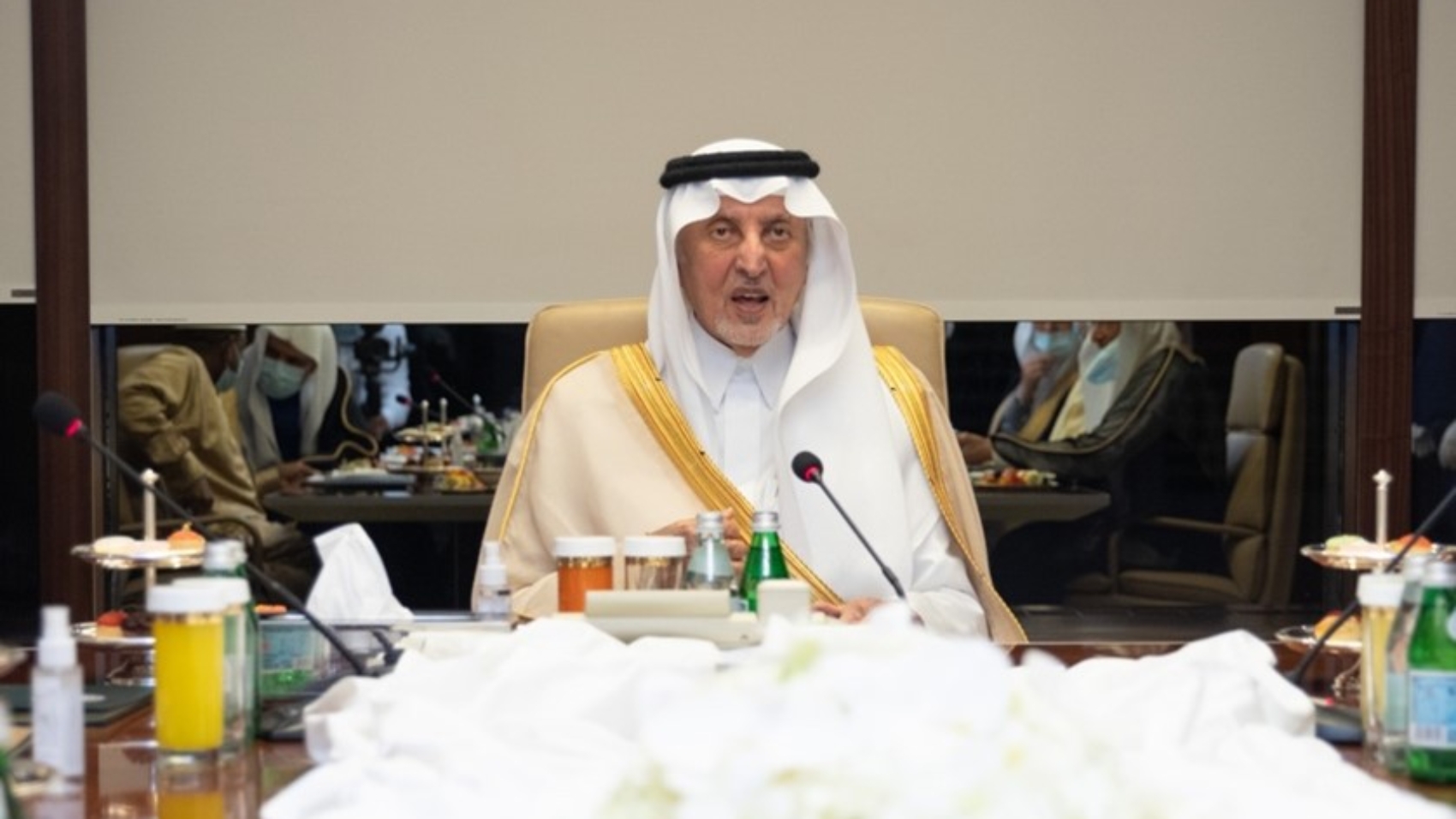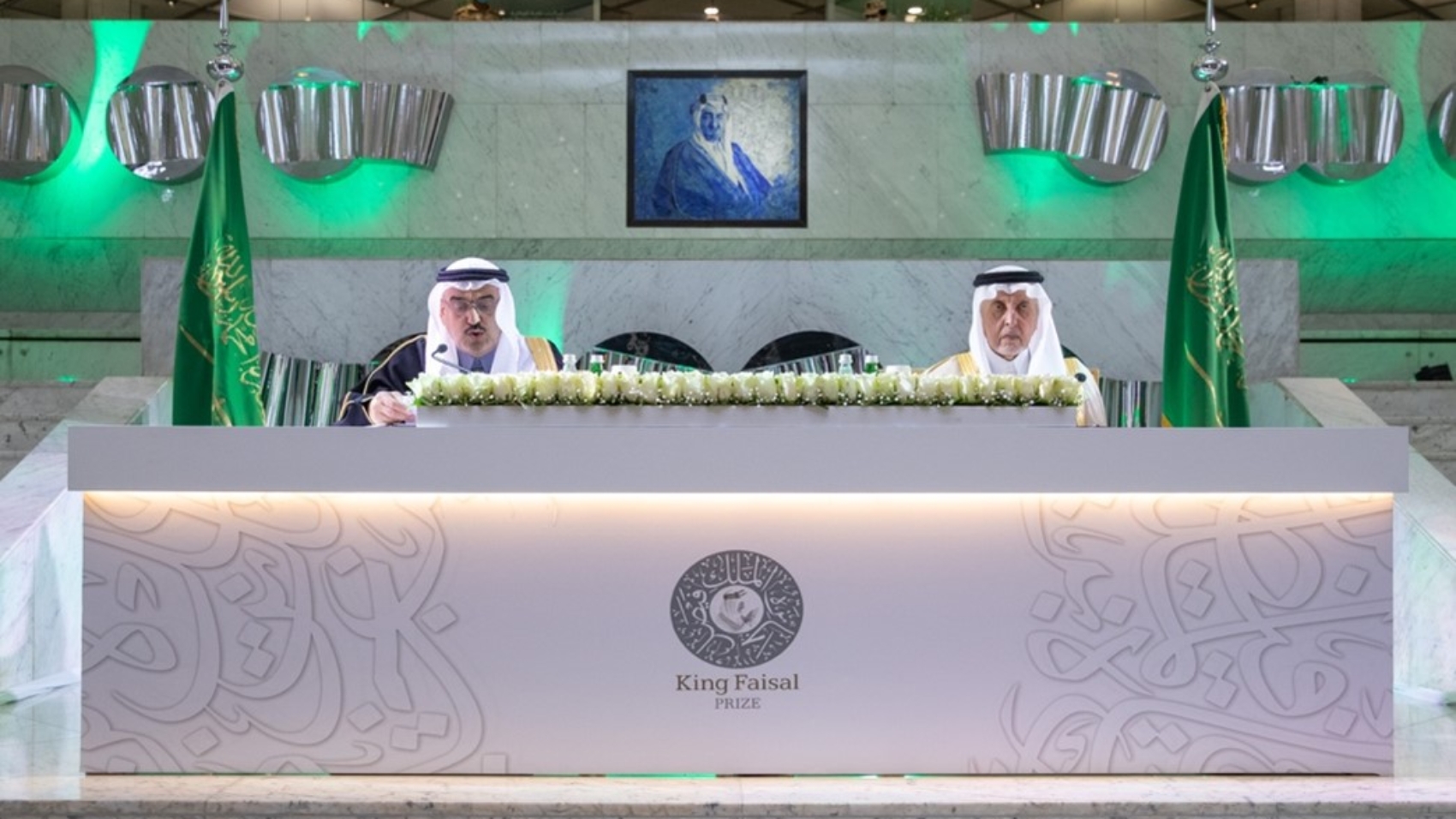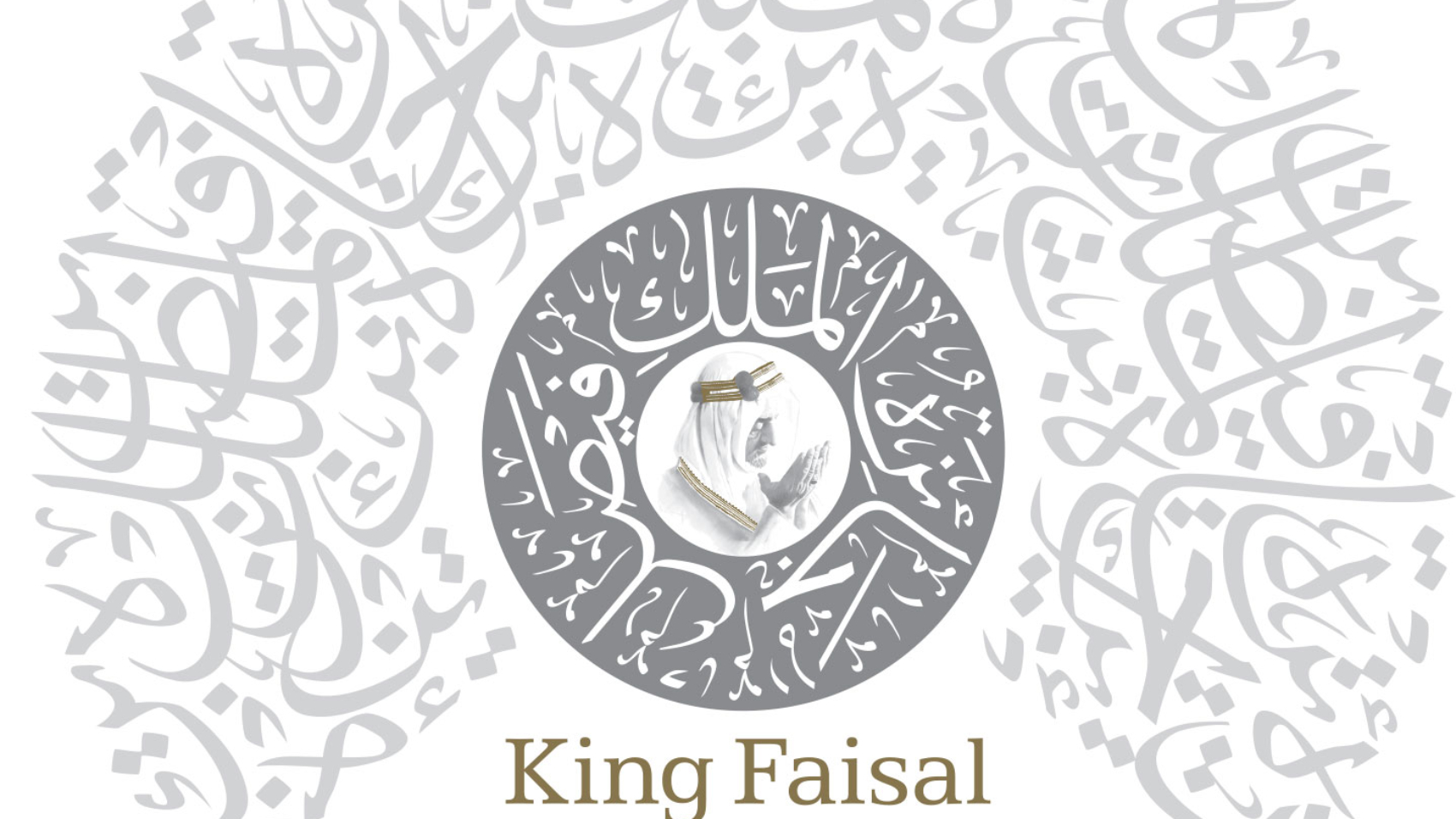In the Name of Allah, the Most Gracious, the Most Merciful
With the grace and glory of Allah, the selection committees of the 2021 King Faisal Prize, after meticulous deliberations that were held from Saturday 6th to Wednesday 10th of February 2021, have reached the following decisions for the Prize’s five categorize of Service to Islam, Islamic Studies, Arabic language & Literature, Medicine, and Science.
First: King Faisal Prize for The Service to Islam
The King Faisal Prize for Service to Islam for this year 2021 is awarded to: Mr. Mohamed bin Abdulrahman Al-Sharikh
Chairman of Sakhr Software Company
In recognition of his outstanding services to Islam and Muslims, which included:
- His production of the first software for the Holy Qur’an and the nine Hadith books in the English language, and the updating of the Islamic information archive, which includes, besides the Holy Qur’an, the Encyclopedia of Noble Hadith, the Encyclopedia of Islamic Jurisprudence, and other programs as well as other Islamic information bases.
- His efforts in the Arabization and production of computer programs since 1982, the development of an Arabic contemporary electronic dictionary, the proofreader program, automatic formal Arabic pronunciation, machine translation, and the development of the vision system for the blind.
- Developing many cultural and educational programs for young people related to Islamic culture and Arabic language, and establishing training and software development centers since the 1980s.
- Archiving and making openly accessible Arabic magazines since the late 19th century with more than two million pages.
- He is considered one of the personalities who have contributed to enhancing the Muslim culture with many works characterized by their rigor and originality. He has played a prominent role in supporting and instilling the spirit of research, creativity and innovation to preserve the heritage of the Muslim Ummah [i.e. community].
Second: King Faisal Prize for Islamic Studies
The King Faisal Prize for Islamic Studies for this year 2021 Topic: (Endowment in Islam) is withheld due to nominated works not elevating to the criteria of the prize.
Third: King Faisal Prize for Arabic Language and Literature
The King Faisal Prize for Arabic Language and Literature for this year 2021, Topic: (The New
Rhetoric) is awarded to:
Professor Mohamed Mechbal
(Morocco)
Professor at the Faculty of Arts, Abdul-Malik al-Saadi University, Morocco
Professor Mohamed Mechbal is awarded the prize in recognition of his initiation and drive of a scholarly project. Most of his work aligns with the Prize’s theme “New Rhetoric”. His output is characterized by depth, novelty and originality, combining theory and practice. He seeks to link up rhetorical research to the fields of literature, language and communication, and the theoretical and procedural foundations of the inception of modern Arab rhetoric, according to an expanded vision inspired by the call for renewal.
Fourth: King Faisal Prize for Medicine
The King Faisal Prize for Medicine for this year 2021, Topic: (Regenerative Medicine in
Neurological Conditions), is awarded jointly to:
Professor Robin James Franklin
(United Kingdom)
Director of the Cambridge MS Society Centre for Myelin Repair. Professor of Stem Cell Medicine at University of Cambridge &
Professor Stephen Mark Strittmatter
(United States of America)
Director of Yale Alzheimer Disease Research Center Professor of Neurology and Neurobiology at Yale University
Professor Robin James Franklin is awarded the prize in recognition of his seminal and pioneering work on the biology of myelin regeneration (remyelination), where he described key events by which adult central nervous stem cells give rise to new myelin-forming oligodendrocytes and key biological pathways, amenable to pharmacological manipulation, providing the scientific rationale and development of myelin regenerative medicine clinical trials approaches and to achieve regeneration in the adult mammalian central nervous system.
Professor Stephen Mark Strittmatter is awarded the prize in recognition of his pivotal contributions to the molecular understanding of failed axonal growth and limited recovery following spinal cord injury. His work and discoveries may have great impact on restoration of axonal growth. He has defined the role of the Nogo –Nogo Receptor – Rho pathway. He has translated these discoveries into the development of new therapeutic approaches and to achieve regeneration in the adult mammalian central nervous system.
Fifth: King Faisal Prize for Science
The King Faisal Prize for Science for this year 2021 Topic: (Physics), is awarded to:
Professor Stuart Stephen Parkin (United Kingdom)
Director of Max Planck Institute of Microstructure Physics. Professor of Microstructure Physics at
Martin Luther University Halle-Wittenberg.
Professor Stuart Stephen Parkin is awarded the prize in recognition of his fundamental discoveries and innovations enabling spin-engineered storage devices which have resulted in a 1,000-fold increase in the storage capacity of magnetic disk drives. He developed practical technologies based on spin valves which transformed human access to data and enabled the “big data revolution”. Which in turn allowed for solving intractable problems that depend on fast access to vast quantities of data through machine learning and artificial intelligence, such as predictions to the impact of climate change. In addition, Parkin discovered novel non-volatile magnetic random-access memory (MRAM), which have been introduced into the marketplace last year.
The General Secretariat of King Faisal Prize commends the 2021 esteemed Laureates and offers its sincere gratitude to the distinguished members of the selection committees, the referees, and the experts of this year’s session for their highly valued contributions. The General Secretariat also extends its appreciation to all organizations and institutions that have graciously collaborated with it in submitting their nominations and the members of the media for their continued interest in the Prize’s activities.
May Allah look favorably on those devoting their time and effort in virtue to the betterment of humanity.


